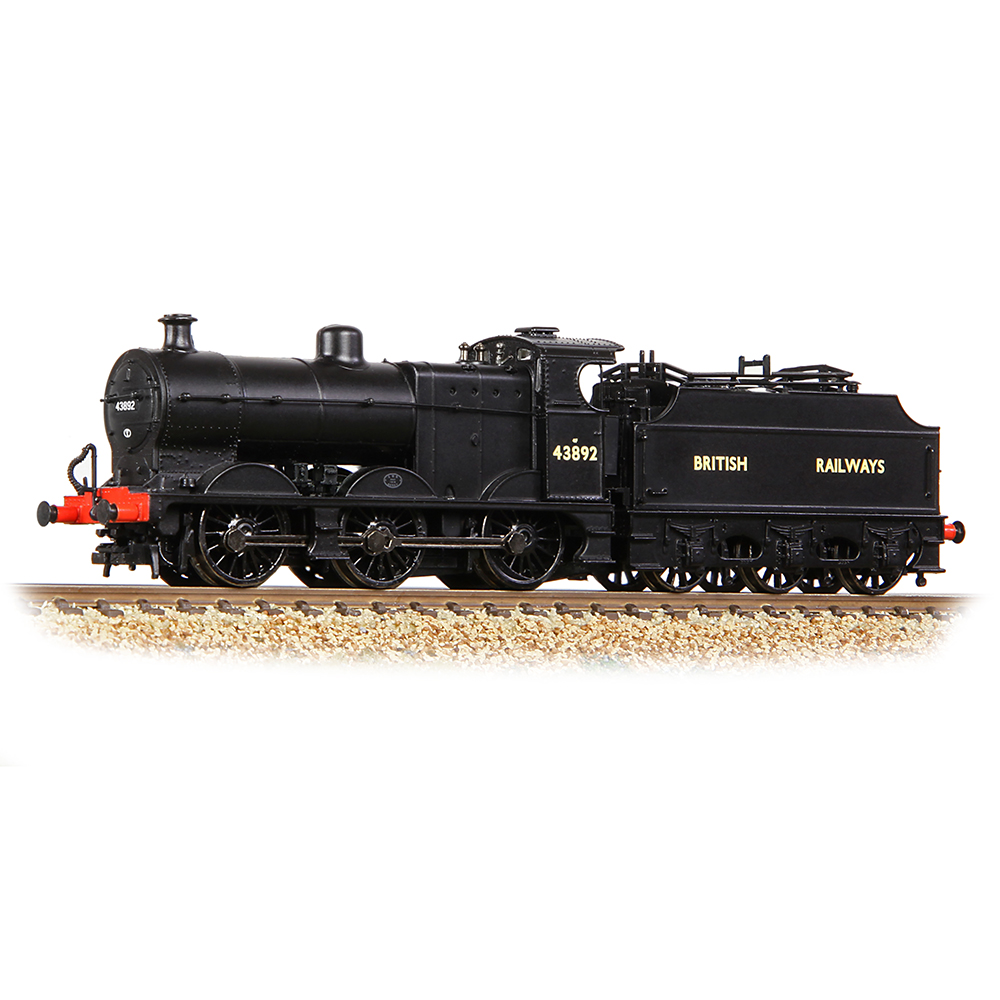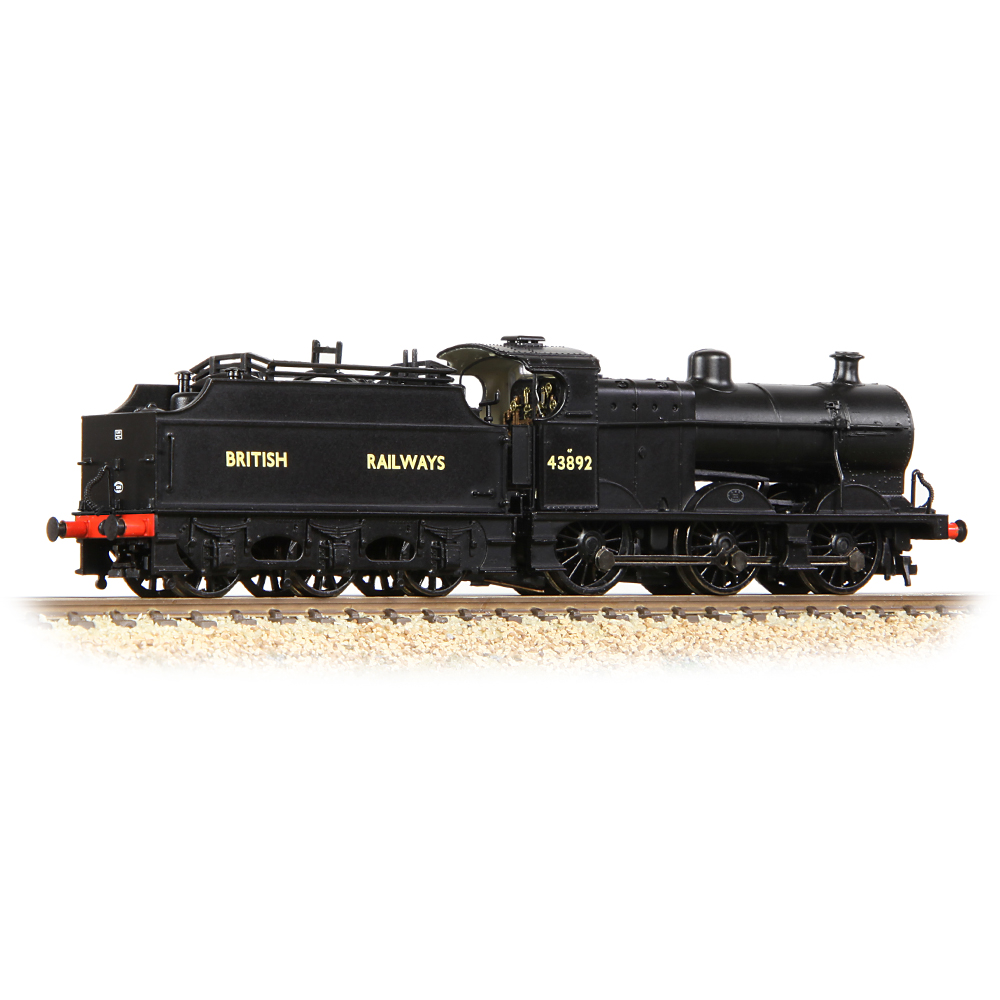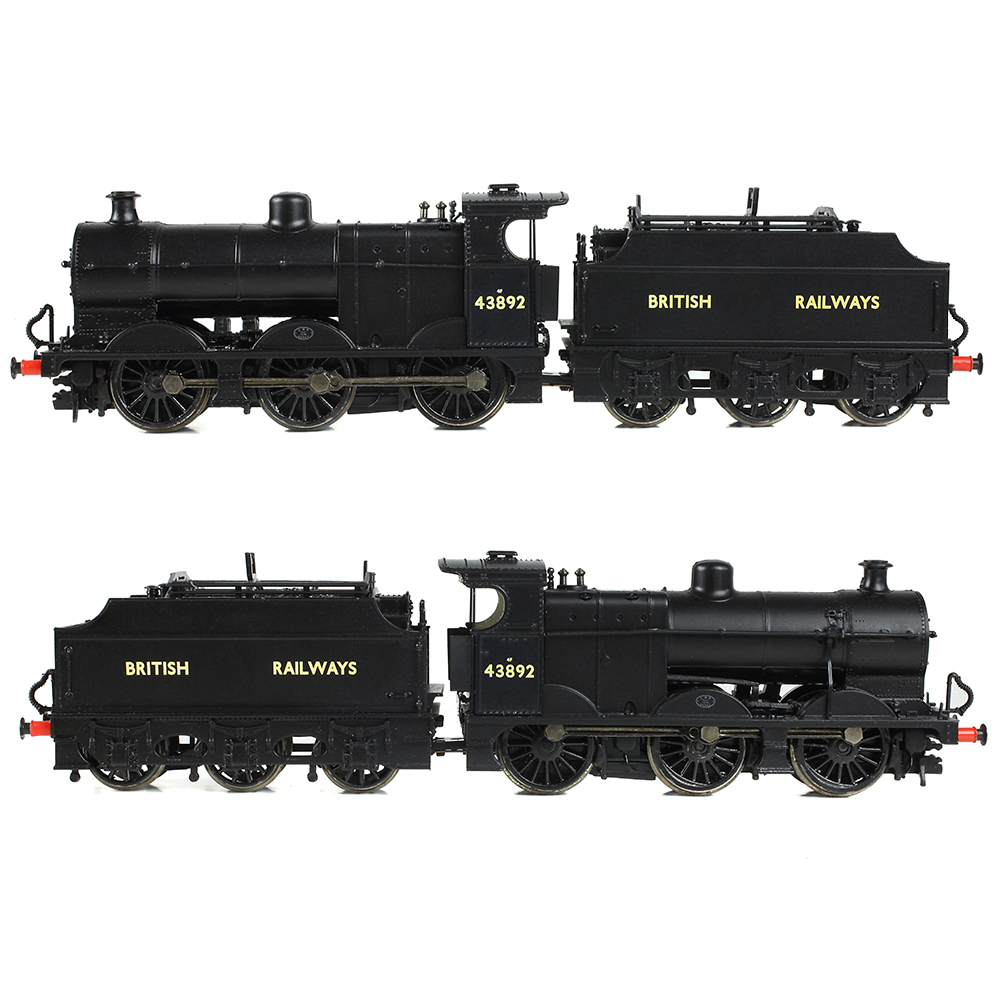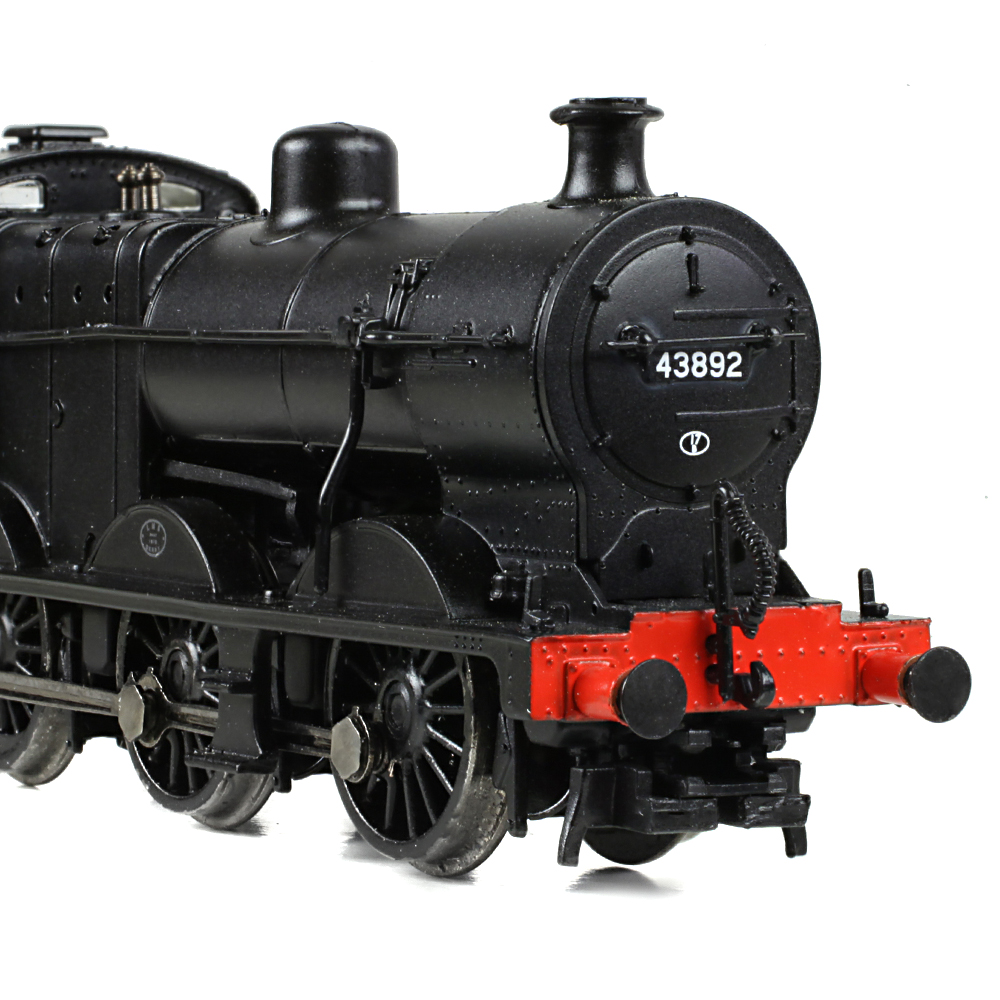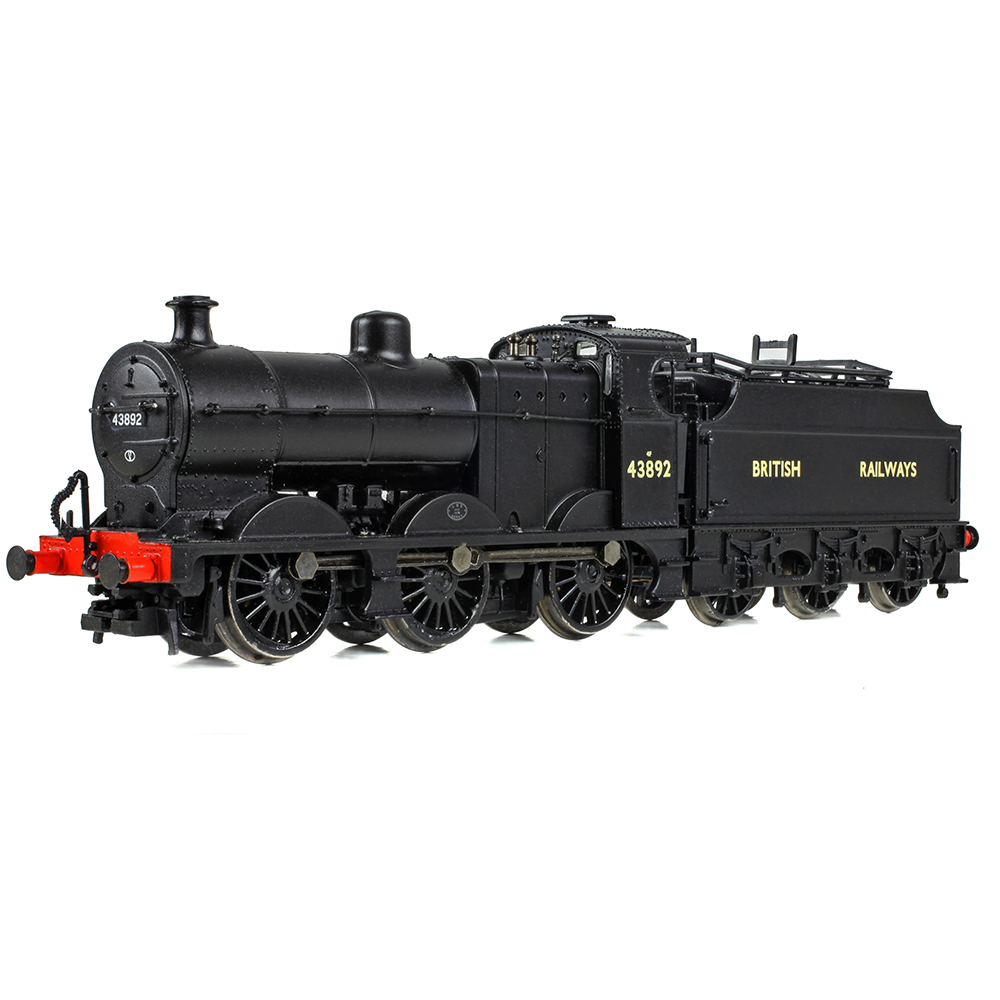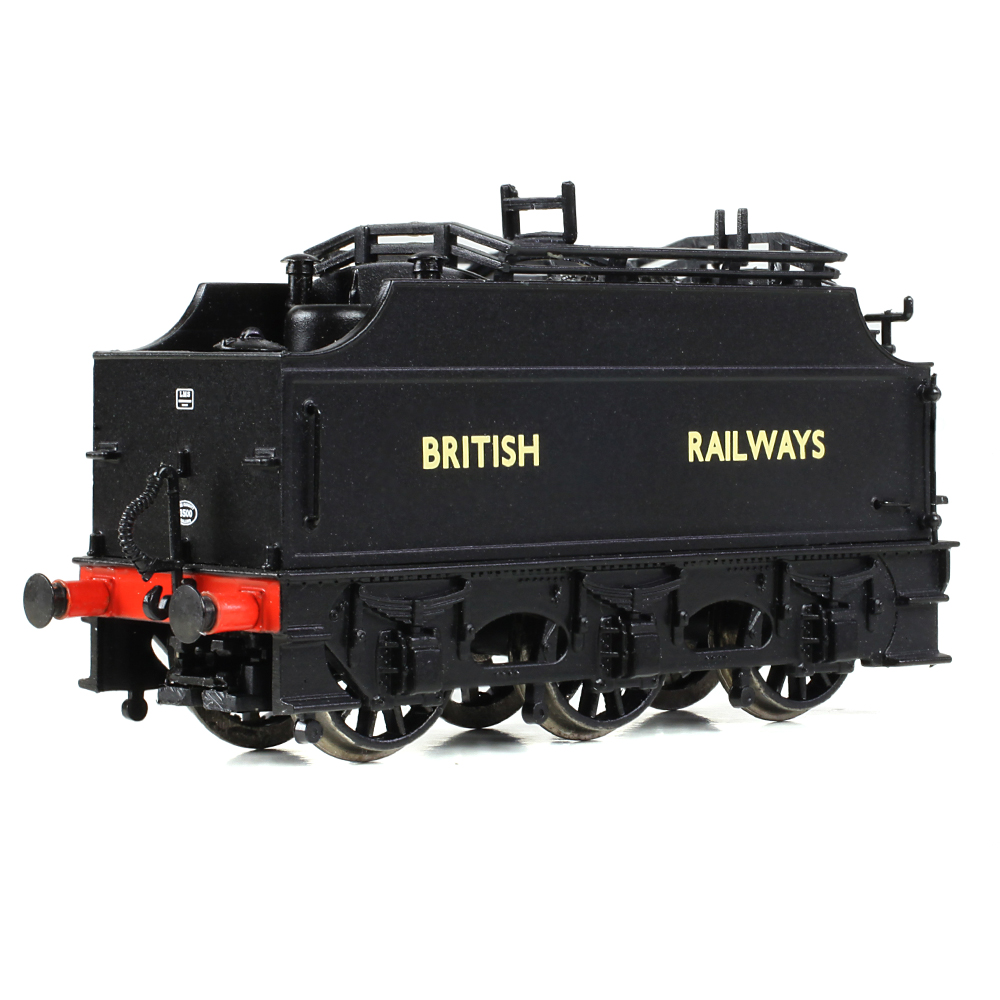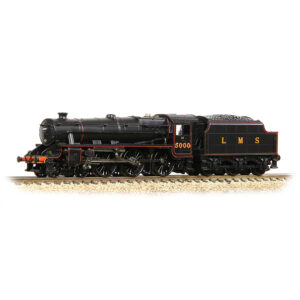Description
Recently upgraded with a Next18 DCC interface and a pre-fitted speaker – allowing this SOUND FITTED model to be produced – the Graham Farish MR 3835 model features a wealth of detail, with many separately fitted parts including the fine metal handrails, safety valves and whistle, and even a representation of the inside valve gear engraved into the chassis and visible below the boiler. Whilst relatively straightforward, full attention has been paid to the livery application which is achieved using authentic logos and fonts whilst the detailed cab interior is brought to life with pipework, fittings and gauges all present and decorated appropriately.
MODEL FEATURES:
- Graham Farish N Scale
- Era 4
- Pristine BR Black (British Railways) livery
- Running No. 43892
- Fowler Tender with Coal Rails
- Accessory Pack
- NEM Coupling Pockets
- Powerful Coreless Motor
- Loco-drive Mechanism
- Tender Pick-ups
- Speaker Fitted
- SOUND FITTED – Fitted with a Zimo MS590N18 Sound Decoder – See below for the function list
- Length 113mm
SOUNDS
F1 – Sound On / Sound Off
F2 – Brake (Non-Latching)
F3 – Cylinder Drain Cocks
F4 – Single Whistle (Speed Related)
F5 – Reverser
F6 – Shovelling Coal
F7 – Injectors
F8 – Blower
F9 – Flange Squeal (Speed Related)
F10 – Safety Valve
F11 – Handbrake (locomotive will not move with the handbrake applied)
F12 – Water Tank Filling
F13 – Coupling Clank
F14 – Light Engine Mode
F15 – Fade All Sounds
F16 – Guard’s Whistle
F17 – Unfitted Freight Mode
F18 – Toot-toot Whistle
F19 – Long Duration Whistle
F20 – Medium Duration Whistle
F21 – ‘Going under Harry’
F22 – ‘That’s an all clear from the guard’
F23 – Guard to Driver, Freight
F24 – Guard to Driver, Passenger
F25 – Volume Down
F26 – Volume Up
Analogue Users: Normal-load running sounds, acceleration steam chuff sounds and any other automatic and randomised sounds can be enjoyed when using this model on analogue control (DC) straight from the box!
MIDLAND 3835 CLASS HISTORY
Designed by Henry Fowler for the Midland Railway (MR), the 3835 Class was first introduced in 1911. Construction of these 0-6-0 freight locomotives was shared between the Midland Railway’s Derby Works and outside contractor Armstrong Whitworth, with 197 examples built by 1922; 192 for the Midland Railway and five for the Somerset and Dorset Joint Railway (S&DJR).
After the Grouping in 1923, the London Midland and Scottish Railway (LMS) inherited all 192 locomotives from the MR (and later the five S&DJR examples when it absorbed that company in 1930) and gave the locos the designation Class 4F. The LMS commenced construction of further 4Fs, much to the same design as the 3835 Class, although the LMS-built locos were left hand drive whereas the original Midland machines were right hand drive.
The 4F was seen as the ultimate development of the 0-6-0 tender locomotive and the type epitomised the British goods engine. The LMS went on to build 575 examples between 1924 and 1941 and all of them, plus the 197 Midland-built locos, entered BR stock following Nationalisation in 1948.
Withdrawals did not commence until 1954, with the 3835 Class all gone by 1965 (the last 4Fs would survive only a year longer), however one MR-built locomotive has survived into preservation, No. 43924. No. 43924 is also notable as being the first locomotive to leave the Woodham Brothers Scrapyard in Barry, South Wales, when it departed in September 1968 for its new home at the Keighley & Worth Valley Railway where the loco is still based today.

